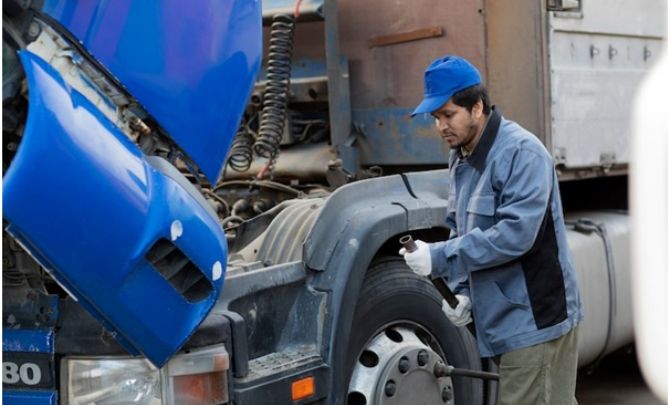Trucks are a vital part of our economy. Every day, they move goods across the country—groceries, fuel, building materials, and more. Without trucks, life as we know it would slow down. But as much as we rely on them, we also need to think about safety. Trucks are large, heavy vehicles. When they’re not properly maintained, the consequences can be devastating.
If you’ve ever been a victim of a truck accident, you understand how quickly things can go wrong. It only takes one brake failure or a worn-out tire to turn a regular day into a life-changing event. That’s why maintenance is more than just a routine checkup. It’s a key part of making sure everyone on the road stays safe—truck drivers and everyday drivers alike.
Why Truck Maintenance Matters
Regular truck maintenance is the first line of defense against accidents. Think of it like taking care of your own health. If something doesn’t feel right, you see a doctor. Trucks need that same attention. Skipping inspections or ignoring warning signs can lead to dangerous situations.
Here are some of the most common problems that cause truck accidents when maintenance is neglected:
- Brake failures
- Tire blowouts
- Steering problems
- Faulty lights or signals
- Engine issues
Each of these can make a truck harder to control or less visible on the road. When that happens, accidents are more likely.
Common Maintenance Issues That Lead to Accidents
Let’s take a closer look at a few issues that often show up in accident reports.
Brake Problems:
Trucks carry heavy loads, so their brakes need to be in perfect working condition. Worn-out brake pads or faulty brake lines can make it impossible to stop in time. That’s especially dangerous on highways or in bad weather.
Tire Blowouts:
Overused or underinflated tires are a ticking time bomb. A tire blowout at high speed can send a truck swerving into other lanes. That puts nearby drivers in serious danger.
Lighting Failures:
Headlights, brake lights, and turn signals aren’t just there for looks. They let other drivers know what the truck is doing. If those lights don’t work, it’s hard for others to react appropriately.
Suspension and Steering Issues:
A truck that doesn’t steer properly is harder to control, especially around tight turns or sharp curves. Drivers need their vehicles to respond quickly. Faulty suspension or steering systems make that difficult.
Who’s Responsible for Maintenance?
This is a big question in accident investigations. In many cases, responsibility doesn’t fall on one person alone. Here’s a quick breakdown:
- Truck drivers are responsible for doing daily checks before and after each trip.
- Trucking companies must schedule regular inspections and fix issues right away.
- Maintenance crews need to do high-quality work and follow safety standards.
When one of these groups fails to do their part, everyone on the road is at risk.
Preventive Measures That Work
So, what does proper maintenance actually look like? Here are some examples:
- Pre-trip inspections every day before driving
- Regular oil changes and engine checks
- Checking tire pressure and wear
- Testing brake systems routinely
- Replacing old or damaged parts on time
By staying on top of these tasks, truck drivers and companies can stop problems before they become accidents.
Final Thoughts
Truck maintenance might not seem exciting, but it’s one of the most important parts of road safety. When trucks are properly cared for, they’re safer, smoother, and far less likely to cause harm. On the flip side, skipping maintenance puts lives at risk.
Whether you’re a driver, part of a trucking company, or just someone who shares the road, it’s important to understand how vital truck maintenance really is. A little time in the garage can save a lot of time—and pain—on the road. Let’s keep safety at the wheel.
